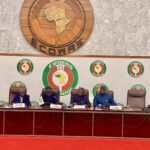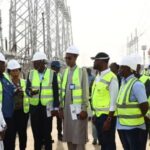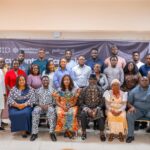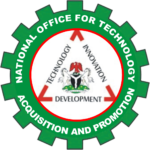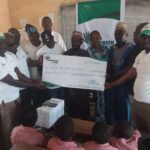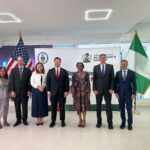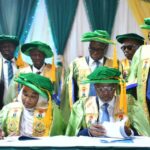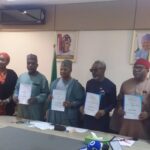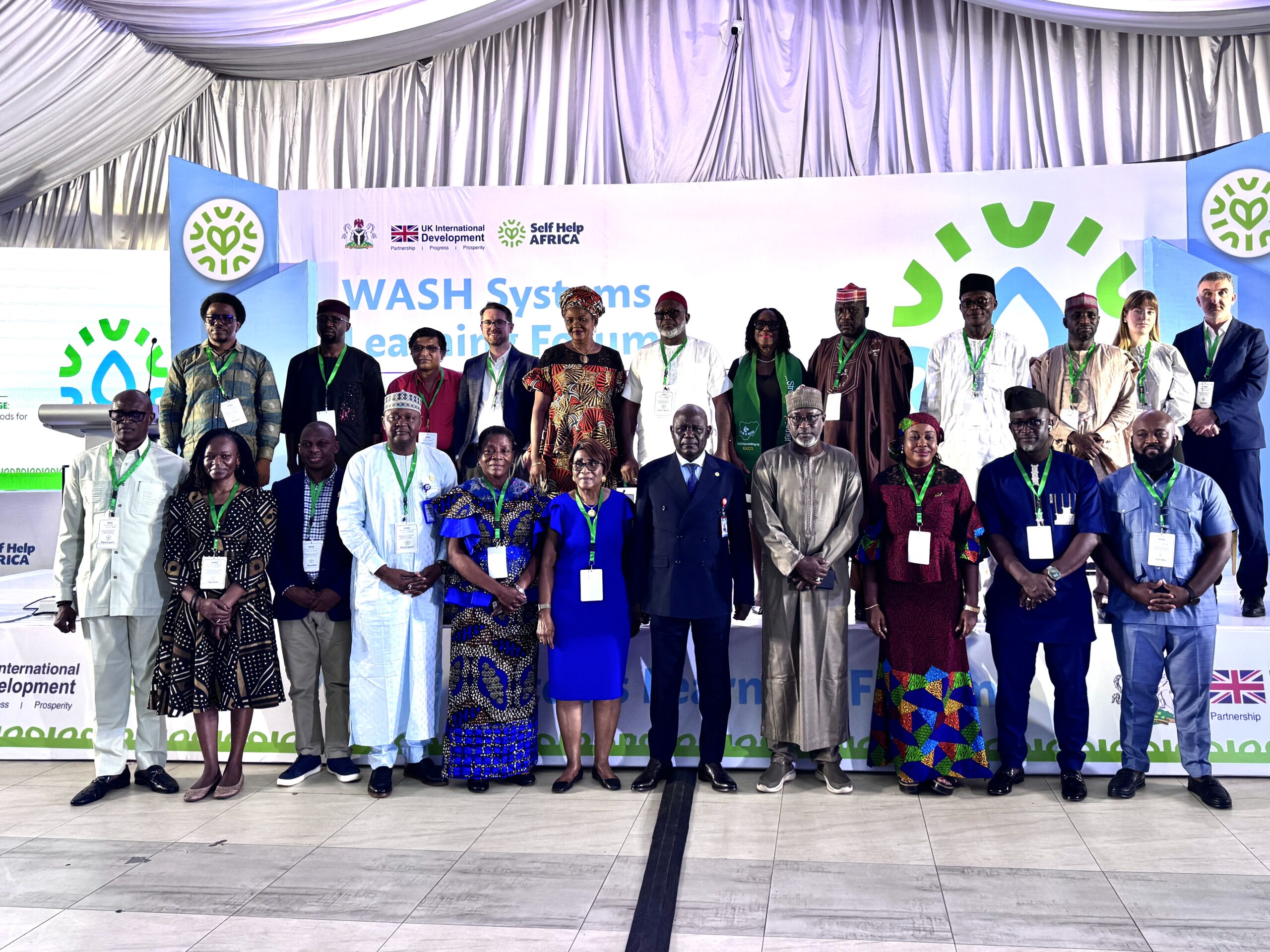By Akpan Glory
Self Help Africa (SHA) on Thursday called for stronger Water, Sanitation and Hygiene (WASH) systems in Nigeria, stressing that sustainable progress depends on coordinated action, accountability, and innovative approaches.
Mrs Joy Aderele, Country Director of the organisation, made the call in Abuja at the opening of the 2025 National WASH Sector Learning Forum, themed Change Mechanism and Measuring Change.
Aderele said the forum reflected a collective resolve to rethink and strengthen structures needed to deliver resilient and inclusive WASH services across the country.
“True change happens when people come together with shared purpose, commitment, and a willingness to change old ways of working. That is exactly what this forum represents.
“The WASH Systems for Health (WS4H) Programme in Nigeria and Sierra Leone has shown that strengthened systems, enhanced capacities, and reformed policies can help communities continue to thrive long after the programme ends in 2027.”
She noted that while progress had been recorded, challenges remain, with only 158 of more than 700 local government areas (LGAs) certified Open Defecation Free (ODF).
Aderele urged participants to confront barriers, share evidence-based solutions, and commit to building systems that would serve communities “not only now, but for generations to come”.
Jill Fletcher, Head of Human Development and Demography at the UK Foreign, Commonwealth and Development Office (FCDO), said the WS4H Programme in West Africa had demonstrated significant impact across its areas of operation.
“In Nigeria and Sierra Leone, strengthened systems, enhanced capacities, and reformed policies are ensuring that communities continue to thrive long after the programme concludes in 2027,” she said.
Fletcher noted that this progress rested not only on infrastructure or funding, but also on leadership, accountability, and collective effort.
“In Nigeria, our collaboration has contributed to meaningful systems transformation; from government ministries driving reforms to local actors shaping context-relevant solutions.
“To partners gathered here who continue to lend their expertise and solidarity, every step we have taken is the result of shared commitment,” she added.
Earlier, Afou Bengaly, Strategic Adviser, IRC WASH Facility, described the forum as a key platform for cross-country knowledge sharing.
“This year’s theme, ‘Change Mechanisms and Measuring Change,’ builds on momentum from the National Sanitation Conference and focuses on understanding how change happens and how it should be tracked,” she said.
“We aim to produce a learning paper and a high-level Nigerian working paper with practical strategies for strengthening monitoring, evaluation, accountability, learning systems, and coordination.
“I encourage everyone to engage fully; share experiences, challenge assumptions, and co-create innovative ideas for the sector.
“This forum is not only about learning; it is about shaping the future of a stronger, more resilient WASH system that delivers lasting health benefits for all”.
Also, Minister of Water Resources and Sanitation, Prof Joseph Utsev, represented by the Permanent Secretary, Mr Richard Pheelangwah, said the forum provided an opportunity to consolidate gains from the National Sanitation Conference.
“Our work is not just technical; it is transformational. Without reliable systems to generate data and ensure accountability, even the best investments risk fading away.
“A WASH project without monitoring is like cooking rice without tasting it,” Utsev said.
He highlighted milestones, including two states certified ODF, over 150 LGAs attaining ODF status, and the creation of a national compendium for climate-resilient WASH infrastructure.
He warned, however, that weak data reliability, incomplete WASHIMS functionality, and the absence of a WASHNORM assessment since 2021 continued to undermine planning.
“No data is as dangerous as wrong data. Both lead to poor decisions,” he said, urging deeper collaboration across federal, state, and local governments, scaling of successful pilot projects, and stronger behavioural change systems.
Utsev commended Self Help Africa, IRC-WASH, FCDO, UNICEF, the World Bank, and other partners, describing WASH as “not only a development issue, but a humanity issue,” before officially declaring the forum open.
Mr Shadrack Guusu, SHA Consortium Manager, gave an update on the £5 million WASH Systems for Health Programme, which operates in Nigeria and Sierra Leone with equal funding.
He said the programme focused on policy planning, rural water supply, sanitation, governance, and climate resilience, with particular attention to improving access for women and girls.
Guusu highlighted key achievements in Nigeria, including policy reviews in Kano and Cross River, strengthened coordination platforms, preventative maintenance models for rural water supply, and improvements in market-based sanitation and social financing.
The forum brought together government officials, civil society groups, researchers, development partners, and private sector actors to share best practices and strengthen collaboration across the WASH sector.
The News Agency of Nigeria (NAN) reports that goodwill messages were delivered by the WASH Ambassador, WaterAid, Society for Water and Sanitation, and a representative of the Minister of Water Resources of Sierra Leone. (NAN)
Edited by Tosin Kolade

